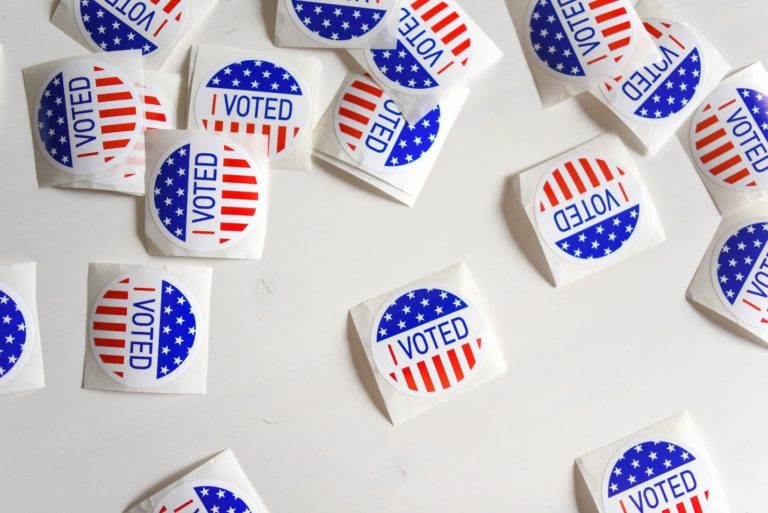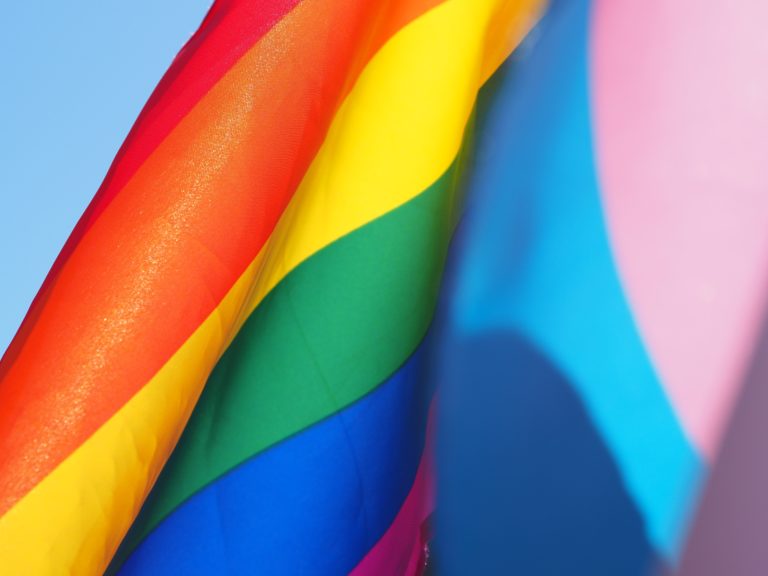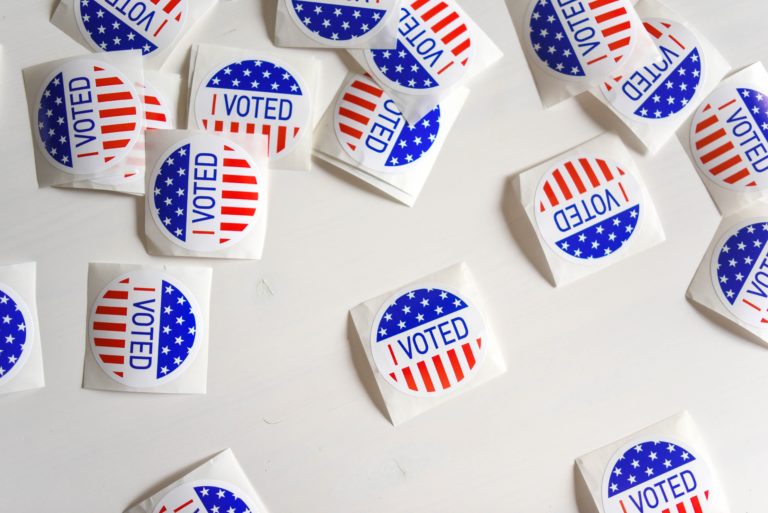2020 is already a record-breaking year for Republican women. More than 200 GOP women have…
LGBTQ women voters may help decide the 2020 Presidential election
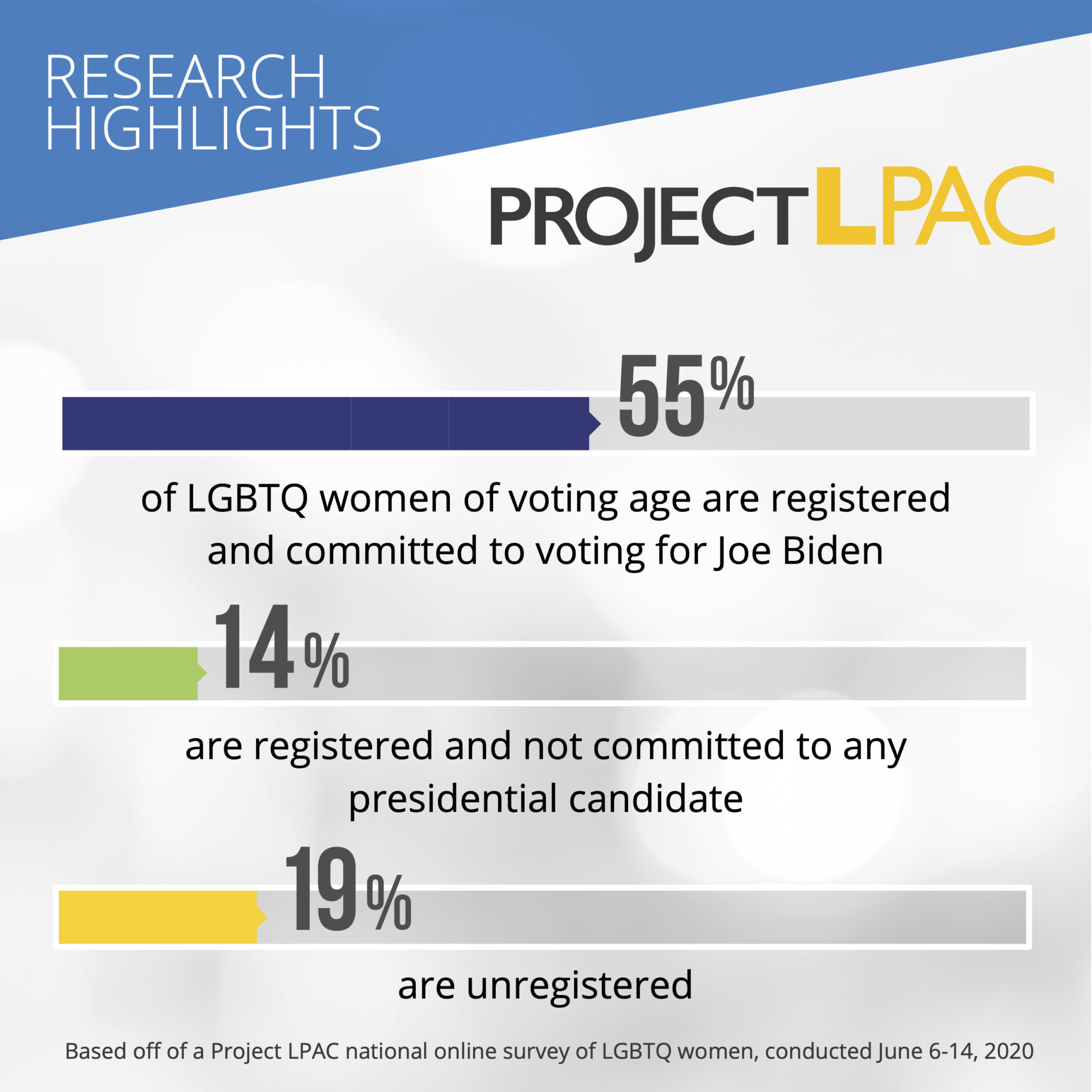
Last year, Project LPAC’s foundational research on LGBTQ women’s civic engagement defined the group as a distinct political community. This year, the nonprofit’s latest research, again conducted with Lake Research Partners, points the way to getting this community of more than 6 million people to the polls in November, a turnout that could help decide the election results.
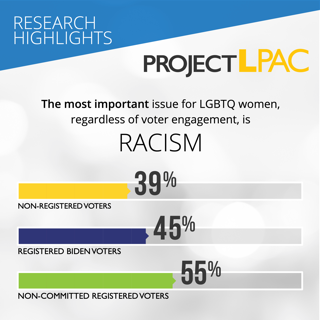
The new survey shows that the key to increasing LGBTQ women’s voter turnout in this election is to think about the community not as a monolith, but rather as three distinct voter groups that identify racism as a top issue they want elected officials to address in 2020:
- Registered, decided voters (55%)
- Registered, undecided voters (14%)
- Unregistered voters (19%)
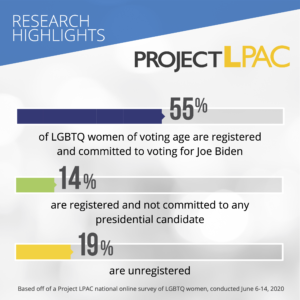
The survey found 55% of LGBTQ women of voting age are registered to vote, and that this group supports Joe Biden over Donald Trump by a huge, 61-point margin (75-14). This group of queer women is a core voter constituency, and are especially motivated when their candidates speak about the issues, they care about most: tackling racism, preserving the Affordable Care Act and protecting the environment.
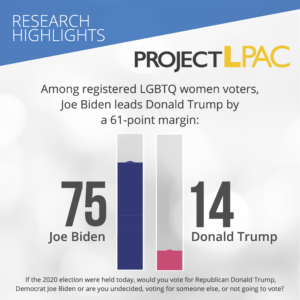
Another 14% of LGBTQ women survey respondents were registered to vote but undecided about who to cast ballots for this fall — or whether they’d even do so at all. The most striking finding was that 90% of this group does not see any difference between Biden and Trump on their handling of LGBTQ issues. If a candidate or organization was willing to put in the effort to make a case about where candidates stand on equality issues, this is a potential chunk of voters waiting to be persuaded, especially non-college-educated queer women under 50, who are slightly more likely to be Black or Asian.
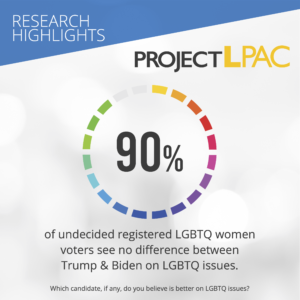
Finally, the new research found that 19% of LGBTQ women over 18 are not registered to vote, despite the fact that they think the government should play a significant role in dealing with unemployment, racism and healthcare. Organizations and campaigns pivoting their Get Out the Vote efforts for the COVID-19 era should focus on conveying why this group’s vote matters in terms of future policy decisions that will affect their daily lives in a very real way – this will pay dividends in increasing turnout among non-college-educated and younger LGBTQ women voters.
LGBTQ women are primed to turn out in force for candidates who can recognize their beliefs and values and tailor messaging accordingly. With a knock-down, drawn-out general election predicted, candidates can’t afford to leave any votes on the table.





